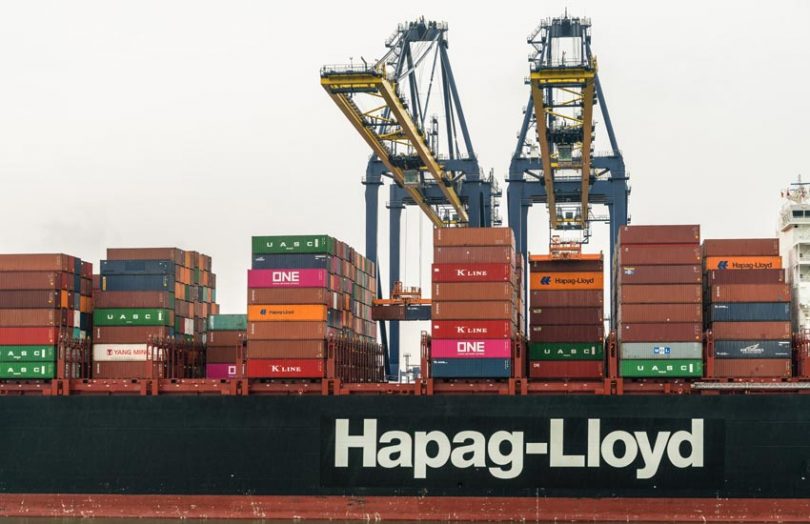The world’s fifth and sixth largest container shippers, Hapag-Lloyd and Singapore-based Ocean Network Express (ONE) have now integrated with the TradeLens blockchain, the container shipping industry network. It’s been almost two years since the two carriers first announced plans to participate in the network, a joint initiative from IBM and Maersk.
TradeLens aims to digitize shipping data, automate processes and enable participants to share data in a permissioned manner using enterprise blockchain.
“We believe TradeLens can bring together all parties in the supply chain to the digital ecosystem where customers can get seamless, transparent and secure sharing of shipping milestones and trade documents. With its open standards and open governance, it can benefit our customers and the entire industry to drive for digitalization and automation,” said Jeremy Nixon, CEO of Ocean Network Express.
With the latest additions, TradeLens now has five of the top six container shippers. Apart from founder Maersk, CMA CGM and MSC went live last October. TradeLens claims it now “enables connectivity” to two-thirds of containerized freight. In other words, the solution is available, but companies that do the shipping need to choose to use it.
The only top-six carrier that’s missing is China’s COSCO which is part of another shipping network, Hong Kong-based GSBN, where Hapag Lloyd is also a member. Hapag Lloyd isn’t the only one adopting multiple blockchain solutions. Recently MSC unveiled an electronic bill of lading solution in conjunction with WaveBL.
TradeLens is currently making a push in Asia and signed ten Chinese partners. The blockchain solution now services 300 organizations across 600 ports and terminals and has processed 42 million containers.






